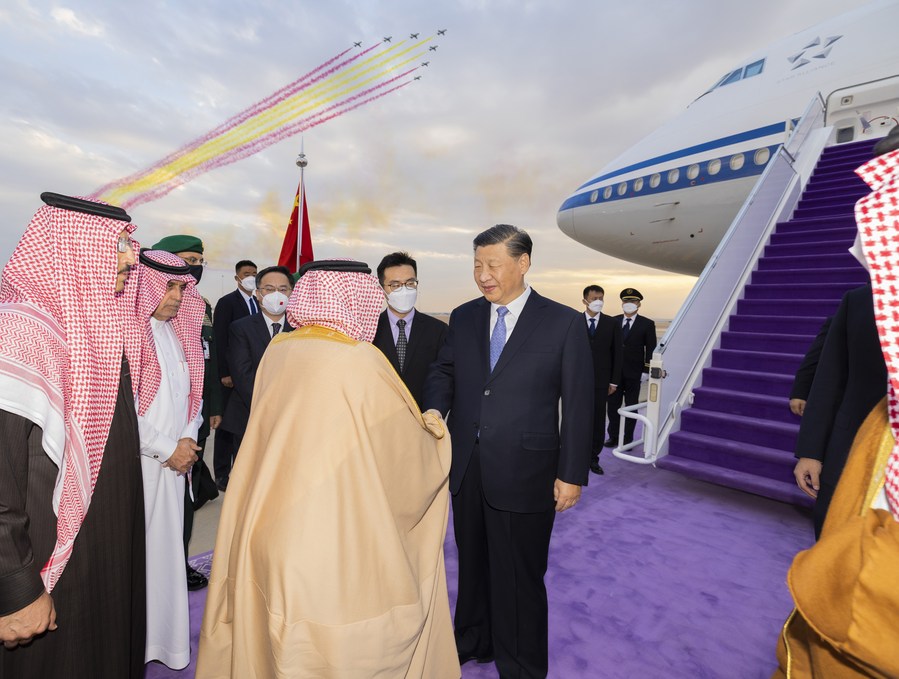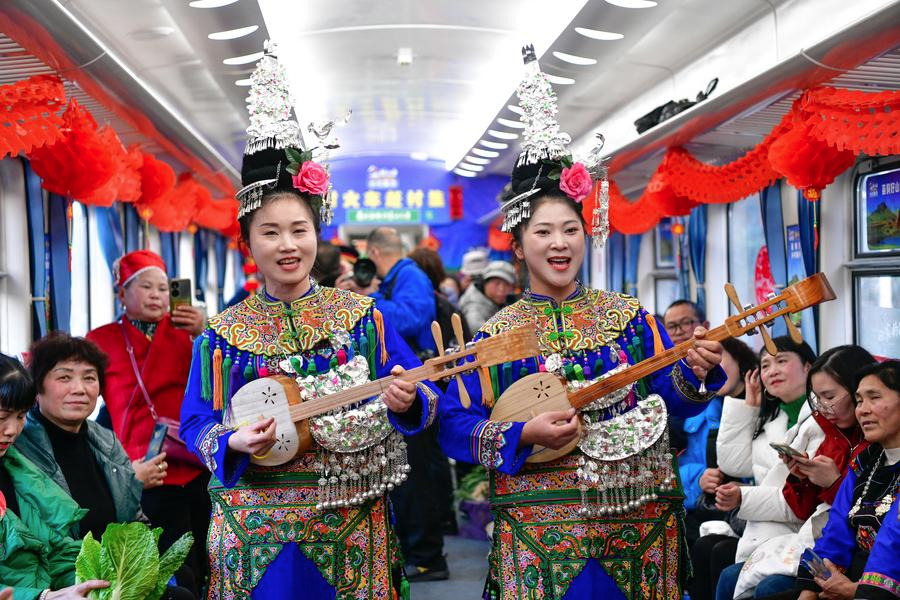Xi's visit carries forward Sino-Arab friendship


President Xi Jinping's recent visit to the Kingdom of Saudi Arabia was an event with far-reaching impacts. During his visit, Xi attended three summits — between Saudi Arabia and China, the Gulf States and China, and the Arab states and China.
These summits paved the way for direct meetings between Arab kings, princes and presidents on the one hand, and the Chinese president and senior officials of the People's Republic of China on the other. There is no doubt that these meetings were impactive, as they promoted closer relations, broader rapprochement and positive results. This was confirmed by the closing statement of the summit between the Arab states and China, which emphasized strong and comprehensive cooperation in various fields. It also stressed the need to benefit from the historical aspect of this relationship, which extends back more than 2,000 years, and the spirit of the East, characterized by harmony and respect.
The statement explained the endeavor of the Arab states and China to consolidate international peace and solve problems through negotiation and not to resort to force, in order to spare the world of the evils of wars and their devastating effects. The relations between Chinese and Arabs have been based, since ancient times, on the principle of mutual respect, noninterference in the affairs of others and respect for privacy. Perhaps this aspect of the Arab-Chinese relationship is what has ensured its vitality and permanence.
This principle is the model that the Arabs invoke in their relations with the West, so they do not accept any interference in their affairs and issues related to the core interests of their countries. However, Western countries do not desist from interfering in the affairs of the Arab states and China and criticizing issues related to the core interests of these countries.
Relations between China and Saudi Arabia and the Gulf and Arab states are set to witness a renaissance after President Xi's visit, not least in the field of culture. The cultural field will contribute, through the expansion of teaching Chinese in these Middle East countries and teaching Arabic in China, to a broader and deeper knowledge and understanding of the reality of the two sides. This will enable them to obtain information about the other directly from the source.
In addition, the mutual exchanges of Arab and Chinese thinkers, scholars, writers, academics and researchers will deepen the communication between the Chinese and Arab civilizations, promoting broader understanding.
The Center for Research and Knowledge Intercommunication, with its distinguished relations with Chinese research, scientific and academic bodies, has established the Saudi Institute for Chinese Studies. This institute will function to activate the role of education and culture between Saudi Arabia and China by providing programs covering political, economic, cultural and historical topics, so that Chinese and Saudi scholars can learn more about each other's country. The institute will also provide translation, facilitate joint research and promote visits by academics and researchers.
One of the most important channels for cooperation between China and the Arab States is the Belt and Road Initiative, which we need to fully activate as a channel for positive interactions and as the main tool for implementing the goals of the Chinese-Saudi-Gulf-Arab summits.
The author is chairman of the Center for Research and Knowledge Intercommunication in Riyadh, Saudi Arabia. The views do not necessarily reflect those of China Daily.
- Galactic Energy launches five satellites into orbit
- Xinjiang's development path aligned with Hong Kong, Macao initiatives
- Ningxia aims for 5.5% GDP growth in 2025
- Helicopter service to shorten travel time across Qiongzhou Strait
- 660,000 nursery slots set to open in China
- China greenlights 129,500 EIA approvals in 2024





































